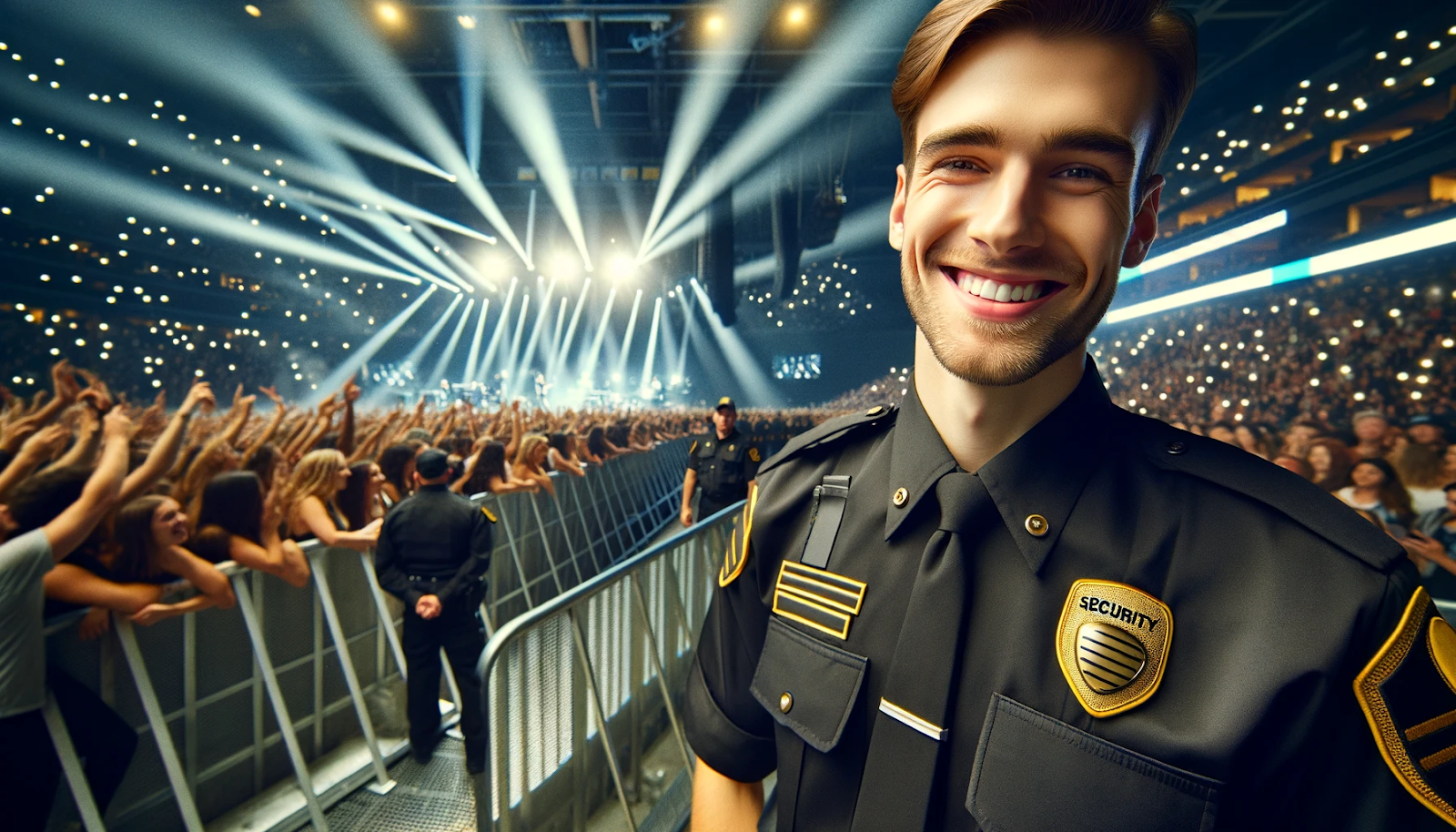Concerts and entertainment events are thrilling experiences, but ensuring the safety of attendees is a priority. Tailoring security strategies to address these events' unique challenges is crucial. Here's how property managers, chief security officers, and hiring managers can craft effective strategies to protect patrons and ensure smooth operations.
Identifying Key Challenges
- Large Crowds: High attendance makes controlling the crowd flow and identifying potential threats challenging.
- Intoxication Issues: Alcohol consumption at events can lead to rowdy behavior and potential altercations.
- Access Control: Unauthorized entry points can lead to gatecrashing and security vulnerabilities.
- Emergency Response: A well-prepared response plan is necessary to handle medical emergencies or evacuations.
- Venue Layout: Complex layouts can create bottlenecks and limit visibility.
Crafting Tailored Security Strategies
- Pre-Event Planning
- Risk Assessment: Evaluate venue-specific risks and threats, such as overcrowding or extreme weather conditions.
- Team Training: Provide specialized training on large-scale event management, crowd control, and de-escalation techniques.
- Access Control Measures
- Ticket Scanning & ID Checks: Verify tickets and IDs to prevent fraud and restrict underage drinking.
- Security Checkpoints: Implement multiple screening layers using metal detectors and bag checks.
- Crowd Management & Monitoring
- Staff Allocation: Place staff strategically at key areas like entrances, exits, and high-traffic zones.
- Surveillance Technology: CCTV systems are used for real-time monitoring and swift identification of threats.
- Alcohol Management
- Vendor Regulation: Monitor alcohol sales and ensure vendors adhere to responsible serving practices.
- Behavior Monitoring: Train staff to identify and manage intoxicated individuals.
- Emergency Response Planning
- Medical Support: Ensure on-site medical teams are available and prepared for emergencies.
- Evacuation Plan: Develop and practice clear evacuation routes and communicate plans to staff and event attendees.
- Communication & Coordination
- Inter-Agency Collaboration: Coordinate with local law enforcement and emergency responders.
- Internal Communication: To stay connected, all security personnel have reliable radios or mobile devices.
Evaluating Post-Event Performance
- Feedback Collection: Gather input from staff and attendees to identify strengths and areas for improvement.
- Incident Analysis: Analyze security incidents to refine future strategies.
Frequently Asked Questions
Q: How can we prevent unauthorized access at concerts?
A: Implement robust access control measures like ticket scanning and layered security checkpoints to deter unauthorized entries.
Q: What should we consider when developing an emergency response plan?
A: Ensure medical support availability, clear evacuation routes, and comprehensive communication between staff and emergency responders.
Q: How do you effectively handle intoxicated individuals at events?
A: Train staff to recognize signs of intoxication and provide de-escalation training to defuse potentially aggressive behavior.
.png)
.png)
.png)

.png)
.png)

.png)
.png)
.png)
.png)
